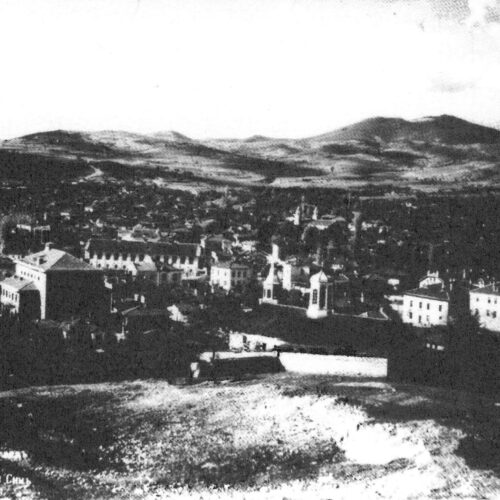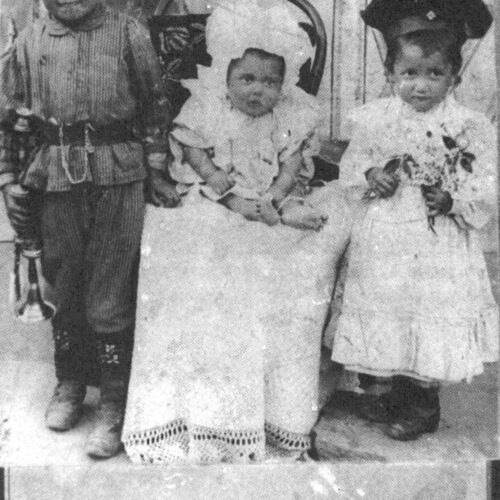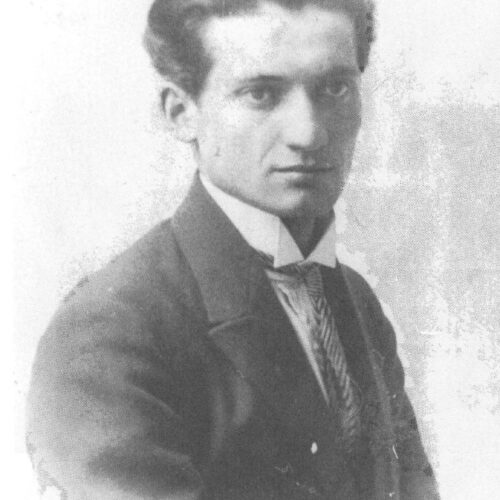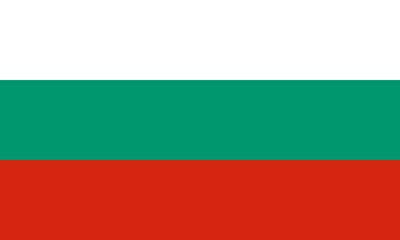Young Years
1901 - 1931
 Nikola Belopitov, known as Kolyo among family and friends, was born in the small Bulgarian town Panagyurishte on August 15, 1901. Panagyurishte is known for its rebellious past and strong personalities of the local people, living surrounded by mountains, centuries-old forests and picturesque slopes.
Nikola Belopitov, known as Kolyo among family and friends, was born in the small Bulgarian town Panagyurishte on August 15, 1901. Panagyurishte is known for its rebellious past and strong personalities of the local people, living surrounded by mountains, centuries-old forests and picturesque slopes.
During the Turkish rule over the Bulgarian territory, the town had significant privileges, retaining its entire Bulgarian population. In the second half of the 18th and the beginning of the 19th century, the town flourished and played an important role in the April Uprising against the Ottomans. Many prominent Bulgarian public figures, politicians and scientists such as Marin Drinov and Nesho Bonchev were born in Panagyurishte. Among them is Nikola Belopitov. The Belopitov family has been present in the city’s archives for generations: Todor and Yosif Belopitov are among the wealthy merchants of the city, Ivan Belopitov is a graduate of Robert College in Istanbul, Todor Beopitov was Georgi Benkovski’s secretary, and his name is preserved on the marble slab at the entrance of the Panagyurishte High School “Nesho Bonchev” along with other prominent freedom fighters.
Nikola’s father, Rayko Belopitov, was born months before the April Uprising. He soon became an orphan and moved to Plovdiv, where he studied watchmaking.
Upon returning to his hometown, Rayko opened a watchmaking workshop, a bookstore and a newspaper delivery service. Later, he also became deputy mayor and among the town’s Popular Banak founders. Nikola’s mother, Maria Dyulgyarova, also lost her parents early and became a professional seamstress. They had together a large family. Due to their hard work and proverbial thriftiness, their children got a good education, combined with a healthy moral base, dignity, and patriotism.
Nikola was the eldest of four children, followed by Raina, Georgi and Milena. Later, when Nikola studied in Germany, Raina became a teacher, Georgi inherited his father’s craft, and Milena worked in the post offices of several cities in Bulgaria. Nikola’s adolescence was marked by the Balkan War and the First World War. When Kolyo was only 14 years old, his father went to war, so he and his mother took over the family business. She was working in the shop while he was delivering the newspapers still going to school.
The two wars led to two consecutive “national catastrophes.” The economic situation became dire; Bulgarian people lived in humiliating poverty; left without legal protection against the authorities, who confiscated their property. Families in Panagyurishte were starving, discontent among the population grew, rallies and demonstrations happened often, and in 1918 “female” riots broke out in town. This political reality contributed to the popularization of leftist ideas among young people who craved social justice. Same year Nikola wrote to a friend, “Justice is always chained in the shackles of violence, but the time has come when chains must thorn and should be torn.” Nikola Belopitov spoke publicly about his left-wing political beliefs, and this did not go unnoticed by authorities. Friends advised his father to send him abroad before he is arrested. With the meagre funds saved by his parents (sewn into the lining of his coat) in 1921, he went to study electrical engineering in Vienna, Austria.


Although advised by his father to “hang politics on the nail”, Nikola returned in 1923 to take an active part in the September Uprising. He was arrested and imprisoned and witnessed the brutal crackdown on the rebels, which further strengthened his desire for political change. After his release, he went to Danzig, Germany (now Gdansk, Poland), where he continued his studies. During these years, he often wrote articles for the student newspaper under the pseudonym “Nikolaus Fry”, describing the atrocities, murders and repressions committed by the Bulgarian authorities during the September Uprising. His political activity did not interfere with his education, and he was an excellent student. He graduated with a thesis on “Calculation of high voltage network for electrification of Plovdiv.” His work was highly appreciated and he received a job offer in Germany. But he chose to return home.

